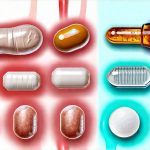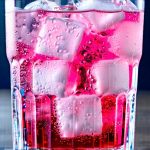Many people experience occasional bladder discomfort – urgency, frequency, or even pain while urinating. While numerous factors can contribute to these symptoms, dietary choices often play a significant role that isn’t immediately obvious. Two commonly consumed substances – alcohol and caffeine – are frequent suspects when individuals attempt to identify triggers for their bladder issues. Understanding the potential links between these beverages and bladder irritation is crucial for managing urinary health and identifying possible lifestyle adjustments.
This article will explore the ways in which both alcohol and caffeine can affect the bladder, detailing the mechanisms believed to be at play, and outlining what types of experiences individuals might encounter. It’s important to remember that individual responses vary greatly, and what bothers one person may not bother another. This information is intended for educational purposes only and should not substitute professional medical advice.
Alcohol and Bladder Function
Alcohol’s impact on the bladder is multifaceted. Beyond its well-known diuretic effect – meaning it increases urine production – alcohol can also directly irritate the bladder lining, potentially exacerbating existing sensitivities or creating discomfort even in previously healthy individuals. The degree of irritation often depends on the type and quantity of alcohol consumed, as well as individual sensitivity levels.
The diuretic properties of alcohol are primarily due to its suppression of vasopressin, an antidiuretic hormone that helps the body retain water. With less vasopressin, the kidneys produce more urine, leading to increased frequency of urination. This can be particularly problematic for those already struggling with bladder control or urgency issues.
Caffeine’s Role in Bladder Irritation
Caffeine is another common dietary culprit linked to bladder irritation. Like alcohol, caffeine acts as a diuretic, increasing the volume of urine produced and potentially leading to more frequent trips to the bathroom. However, its effects go beyond simple diuresis; it can also directly stimulate the bladder muscles, contributing to feelings of urgency and discomfort.
How Caffeine Affects Bladder Muscles & Sensitivity
Caffeine is known to have a stimulating effect on the detrusor muscle, which controls bladder contraction. This stimulation can cause involuntary contractions, leading to a sensation of needing to urinate even when the bladder isn’t full – a hallmark symptom of overactive bladder. Furthermore, caffeine may increase sensitivity in the bladder lining, making individuals more aware of normal bladder sensations and potentially misinterpreting them as discomfort or urgency.
Types of Beverages & Caffeine Content
The amount of caffeine consumed significantly impacts its potential to cause bladder irritation. Different beverages contain varying levels of caffeine; a strong cup of coffee will obviously have more than a decaffeinated tea, but even seemingly innocuous drinks like soda and chocolate can contribute to overall intake. Being mindful of the caffeine content in all sources is important for those attempting to manage bladder symptoms. It’s also worth noting that some individuals are more sensitive to caffeine’s effects than others, meaning smaller amounts may be enough to trigger irritation.
Identifying Caffeine as a Trigger & Mitigation Strategies
For individuals suspecting caffeine as a contributing factor to their bladder issues, a period of elimination and reintroduction can be helpful. Removing all sources of caffeine from the diet for a few weeks, then gradually reintroducing them one at a time, allows for observation of any resulting changes in symptoms. If caffeine is identified as a trigger, reducing overall intake or switching to decaffeinated alternatives may alleviate discomfort. Staying adequately hydrated throughout the day can also help dilute urine and lessen irritation.
Ultimately, managing bladder health often requires a holistic approach that considers various factors beyond just diet. However, understanding the potential impact of substances like alcohol and caffeine empowers individuals to make informed choices and proactively address possible triggers for their symptoms. If you are experiencing persistent or severe bladder issues, seeking guidance from a healthcare professional is essential for accurate diagnosis and personalized treatment recommendations.





















